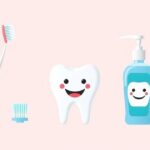Are you tired of worrying about your dental health? The quest for strong teeth and healthy gums can feel overwhelming, especially as we age. Many women over 30 find themselves facing dental challenges that can affect confidence and overall wellness. Luckily, this doesn’t have to be your reality. With the right vitamins, you can support your oral health from the comfort of home. Join us as we discover the best vitamins for 2025 that empower you to achieve the smile you deserve.
Understanding the Role of Vitamins in Dental Health
Vitamins play a vital role in dental health and can significantly impact the strength of your teeth and the health of your gums. When we think of oral health, we often focus on brushing, flossing, and regular dental visits. However, the nutrients we consume can also dictate the overall health of our mouths.
Each vitamin has a unique contribution. For example, Vitamin C is known to support gum health, while calcium is crucial for maintaining strong teeth. Understanding how these vitamins work can help you make better food choices and create an effective oral health routine at home.
Top Vitamins for Strong Teeth in 2025
As we look towards 2025, some vitamins stand out as essential for maintaining strong teeth:
- Vitamin D: This vitamin helps your body absorb calcium, which is crucial for strong teeth. Without enough Vitamin D, your body can’t use calcium efficiently, leading to weakened teeth.
- Calcium: Known for building strong bones, calcium also strengthens tooth enamel and serves as a defense against cavities.
- Vitamin C: This vitamin is vital for the production of collagen, which supports the structures of your gums. Adequate Vitamin C intake can help prevent gum disease.
- Phosphorus: Working alongside calcium, phosphorus is important for maintaining strong teeth and bones.
Essential Nutrients for Healthy Gums
Healthy gums are the foundation of good dental health. Here are some essential nutrients that contribute to gum health:
- Omega-3 fatty acids: Found in fish like salmon and sardines, these fats can help reduce inflammation in the gums.
- Fiber: Foods high in fiber like fruits and vegetables help remove plaque and keep gums healthy.
- Zinc: This mineral helps combat bacteria in your mouth, promoting healthier gums.
How to Incorporate Vitamins into Your Diet
Incorporating vitamins into your daily routine doesn’t have to be challenging. Here are simple ways to boost your vitamin intake:
- Eat a Balanced Diet: Focus on whole foods like fruits, vegetables, nuts, and lean proteins. These foods are naturally rich in essential nutrients.
- Consider Fortified Foods: Some cereals and plant-based milks are fortified with essential vitamins and minerals.
- Plan Your Meals: Taking some time each week to plan meals can help ensure you’re getting a variety of nutrients.
Vitamins vs. Dental Issues: What to Know
Understanding how vitamins interact with various dental issues is important. Poor nutrition can lead to dental problems like cavities and gum disease.
For instance, a deficiency in Vitamin C can lead to gingivitis, while a lack of calcium might increase your risk for tooth decay. Regularly consuming the right vitamins can act as a preventative measure against many common dental issues.
Natural Sources of Essential Vitamins
Finding natural sources of vitamins is a great way to ensure you are getting enough nutrients for strong teeth and healthy gums. Here are some food sources to include in your diet:
- Vitamin D: Fatty fish, egg yolks, and fortified dairy products.
- Calcium: Dairy products, almonds, leafy green vegetables, and fortified plant-based milks.
- Vitamin C: Citrus fruits, strawberries, bell peppers, and broccoli.
- Phosphorus: Meat, fish, dairy, nuts, and beans.
Supplements: When to Consider Them
While it’s best to get nutrients from food, supplements can be a helpful addition if you’re struggling to meet your vitamin needs. Consider supplements when:
- You follow a restricted diet (like veganism) and may not get enough nutrients.
- You have a medical condition affecting nutrient absorption.
- You’re at risk for deficiencies based on your lifestyle or life stage (like pregnancy).
Always consult with your healthcare provider before starting any new supplement regimen.
Lifestyle Changes to Boost Oral Health
Improving your oral health goes beyond vitamins. Consider making these lifestyle changes:
- Stay Hydrated: Drink plenty of water to help wash away food particles and bacteria.
- Avoid Sugary Snacks: Sugar can contribute to tooth decay, so opt for healthier snacks.
- Quit Smoking: If you’re a smoker, quitting can significantly improve your gum health.
Common Myths About Vitamins and Teeth
There are many misconceptions regarding vitamins and dental health. Here are a few myths debunked:
- Myth: Only calcium is needed for strong teeth. Fact: Many vitamins and minerals work together to support dental health.
- Myth: Supplements can replace a healthy diet. Fact: Whole foods provide numerous benefits that supplements cannot replicate.
Success Stories: Women Who Transformed Their Dental Health
Many women have experienced dramatic changes in their dental health by focusing on vitamins and lifestyle adjustments. For example:
- Sarah: At age 35, she struggled with gum sensitivity. After increasing her Vitamin C intake and practicing good oral hygiene, her gum health improved significantly.
- Linda: A 42-year-old mother who switched to a whole-foods diet saw her previously brittle teeth strengthen within months.
These stories serve as inspiration that it’s possible to transform your dental health with commitment and the right knowledge.
With love and care, you can embark on a journey to enhance your oral health and smile brighter. Just remember that small, consistent changes can lead to significant improvements. Believe in yourself and your ability to take charge of your health — just like countless other women have done before you.






